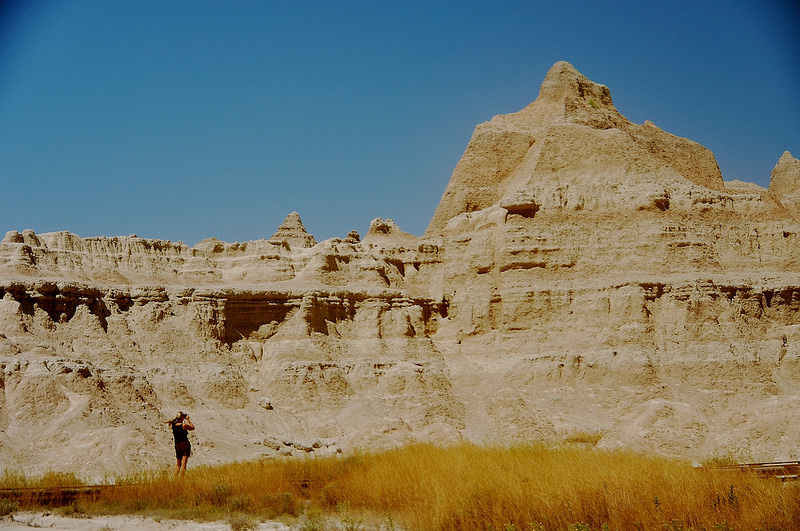| Forest Service officials are acting all surprised, like they can’t imagine why in the world the media and the public would jump to such awful conclusions. Those conclusions, outlined in news stories earlier this month, were that anyone who wanted to take a photo in a federal wilderness area — even with a cell phone — would need a permit first if a proposed set of rules was put into effect. If caught without a permit, they would have to pay $1,000. |
| | I can’t imaging how anyone got that idea, unless it was from acting Forest Service Director Liz Close, who told it to the media. Now we know better. The truth is … well, the truth is … well, what is the truth? On the one hand, we have Forest Service officials smiling and telling us to calm down; that the First Amendment still is part of the Constitution. “If you’re there to gather news or take recreational photographs, no permit would be required,” Forest Service Chief Tom Tidwell said in a statement quoted by Reuters. But on the other hand, we have real-life examples of what happens when news teams try to exercise those rights. Idaho Public Television had to spend months negotiating with Forest Service officials who wanted the film crew to obtain permits before shooting a documentary. The crew told the Seattle Times that the Forest Service seemed less concerned with how they might damage the wilderness than with what they might eventually broadcast. “We had to convince them our stories would be in keeping with their interpretation of the values of wilderness,” Ron Pisaneschi, general manager of Idaho Public Television, told the Times. “We got the permits, but now we’re saying, ‘Enough.’ That’s not right. Our role is not to be a PR office for the Forest Service.” This wasn’t an isolated case, the Times said. Oregon public broadcasters claim they have been asked to obtain permits before filming wilderness. A few years ago, Yellowstone National Park officials asked a reporter to obtain a permit and liability insurance before interviewing a biologist. The proposed new rules are based on a temporary directive that has been in place for years — a directive in effect when the above-mentioned incidents took place. The problem, the Times report said, is not what Tidwell and other high-level folks say the policy is, it is how lower-levels officials, rangers and land managers interpret it. If you line up a bunch of people on the trail into the Grand Canyon and whisper the policy into one ear, it sounds a lot different in the end than it did at the beginning. Except that this goes deeper than that. Or perhaps I should say it goes higher. The Forest Service is part of the Obama administration, and the president has hardly been whispering his concerns about controlling the message. He has been louder about it than any prior administration. People usually add “with the exception of Richard Nixon” onto the end of sentences like that. But in hindsight, Nixon was horrible at controlling the message. Obama so far has been pretty good at it. As a Deseret News editorial pointed out earlier this week, the administration’s obsession with message includes no longer allowing embedded reporters on military missions, closing all access to Guantanamo, threatening government employees with termination for being seen with reporters, and requiring prohibitive costs and taking long times to respond to requests under the Freedom of Information Act. And that’s not to mention wiretapping phones at the Associated Press or threatening reporters with jail time for refusing to provide the names of sources. The Forest Service says the new permit rules would apply only to large commercial filming ventures and those that would require props and other intrusions into the pristine landscape. But while you’re nodding your heads at the reasonableness of that requirement, consider that the proposal also requires officials to consider whether the commercial venture “spreads information about the enjoyment or use of wilderness or its ecological, geological, scientific, educational, scenic or historical values…” as Close told snopes.com. There’s that concern about message again. How will the government treat a movie that is critical of the way wilderness is managed? How will it treat that selfie from a wilderness area you posted on Facebook along with a political statement? Don’t worry, the government says, today. |


 RSS Feed
RSS Feed

